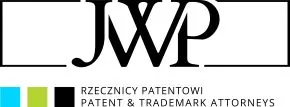- with readers working within the Media & Information industries
- in Turkey
Can a company marketing products known in most countries in the world lose the rights to use its trademark of which it is the originator? Subsequent cases indicate that they do.
The US court ruled that the Australian brand Ugg Since 1974 - a manufacturer of popular sheepskin footwear - has to cease using the "Ugg" trademark in all territories except Australia and New Zealand. The American company Deckers Brands retained full rights to the trademark for the same goods in all its existing markets.
What led to the loss of rights?
Trademarks are protected in a specific territory. That is, different entities may register identical signs in different countries.
In the case of the designation "Ugg", it was first used by the Australian company Ugg Since 1974. Then, it was used in the 1980s. In the United States, an entrepreneur registered the trademark Ugg" for the same goods. These rights were then bought back by Deckers, which registered further trademarks with the "Ugg" element in more than 130 countries, including "Ugg Australia". Although Ugg Since 1974 is a trademark right holder in Australia and New Zealand.
In the situation in which Ugg Since 1974 found itself, it is very difficult to defend the right to a trademark in another territory. However, there are ways and means to take legal action at the appropriate time to prevent the registration of similar signs and their use in other territories. This is especially true in the case of reputable signs. These possibilities in a given case depend, among others, on activities in a given territory, competitiveness on the market or legal culture.
Transition of the trademark to everyday language
In the context of the dispute over the trademarks "Ugg", which can be considered reputable under Polish law, it is also worth mentioning the risk of degeneration, i.e. the so-called blurring of designations. We talk about this type of situation when, for example, the aforementioned footwear model becomes so popular that many smaller companies from Australia start producing the same type of footwear, and the name "Ugg" becomes a generic name. Degeneration or blurring of a trademark means the process in which the trademark loses the ability to perform its basic function – to identify and distinguish the goods or services of a given company from its competitors. If the mark becomes too common or begins to be used in a general way, e.g. it becomes the name of a certain group of products, its ability to distinguish the origin of the goods disappears.
In the case of Ugg footwear, which have become an export commodity of Australia, and the designation of the type of footwear in small letters, there has been some blurring of the distinctive character of the trademark. Despite the fact that recipients associate the name with the manufacturer, in a situation where footwear is marketed by several entrepreneurs, the designation becomes a generic term and goes into everyday language.
One way to protect against the degeneration of a trademark is to control and ensure that the trademark does not become a general term for an entire category of products and maintains its unique character and relationship with a specific manufacturer or product or service.
Does market priority make a difference?
Market priority, emphasized in the dispute "Ugg" is important under Polish law in terms of combating unfair competition. For protection under the Act on Combating Unfair Competition to be claimed, it must be shown that the products in question have previously been traded (so-called market priority) and the existence of an asset that deserves protection against an unlawful or immoral act.1
In the dispute over the designation "Ugg", it is difficult to assess which company had market priority in which territory. It can be presumed that, in the case of a trademark action (in the United States earlier in favour of Deckers), this issue was not assessed by the court or the court only recognised the rights of Ugg Since 1974 in the territory of Australia and New Zealand. This led to the loss of rights to the Ugg brand and the need to change the main brand.
What actions should be taken so as not to expose yourself to a dispute?
In the case of, first of all, large, reputable brands, it is important that, together with the intention to introduce goods into a given territory, the trademark is simultaneously registered. The owner then has both the basis to prosecute the infringers and protects the brand from losing the rights to the trademark, as it has official confirmation of their ownership. It is also necessary to regularly check how the trademark is used, this allows for faster detection of cases of its improper use. Trademark owners should respond to unauthorized use of their trademark and ensure that it is properly protected.
In the absence of a reaction to the unauthorized use of the trademark and the lack of registration of earlier rights, there may be a situation where another entity registers an identical sign in another territory, where the original holder also places the goods on the market and, as a consequence, an action for infringement of the trademark is brought.
The situation is even more egregious in the 'Ugg' trademark case, as it appears that a company with a longer existence on the market has lost and is thus forced to change its main brand, which generates additional costs and also negatively affects the reputation and recognition of the brand.
Comprehensive brand protection and taking timely legal action are key, as the above example shows. Occasionally, a seemingly winning case can end in a surprise, resulting in the company incurring huge losses despite questionable actions by competitors. Intellectual property law is a challenging and demanding area of law, which is why it is so important to work with experienced and specialised counsel.
Footnote
1. Judgment of the Court of Appeal in Warsaw, 7th Commercial and Intellectual Property Division, Case No. VII AGa 314/19
The content of this article is intended to provide a general guide to the subject matter. Specialist advice should be sought about your specific circumstances.


